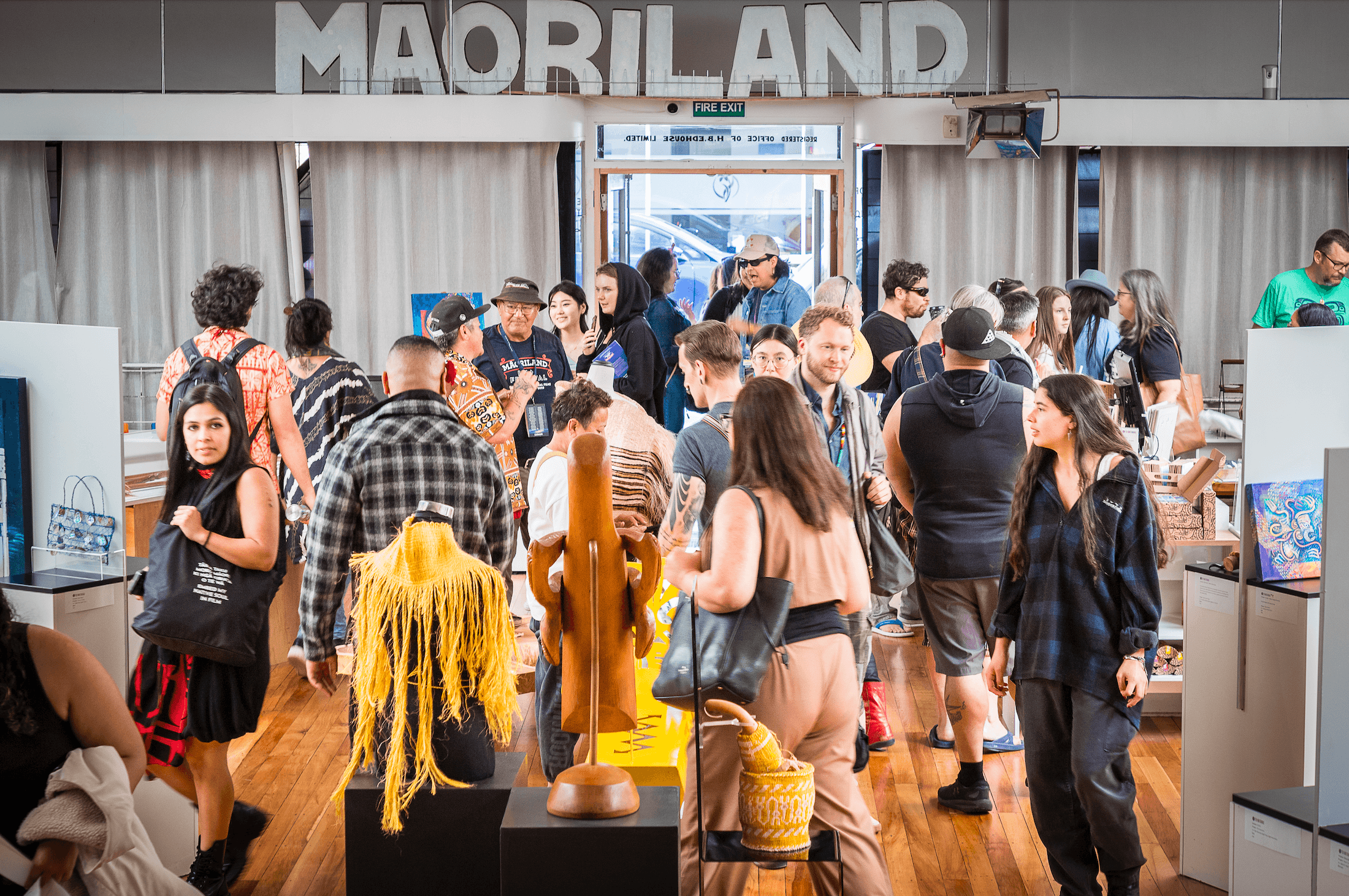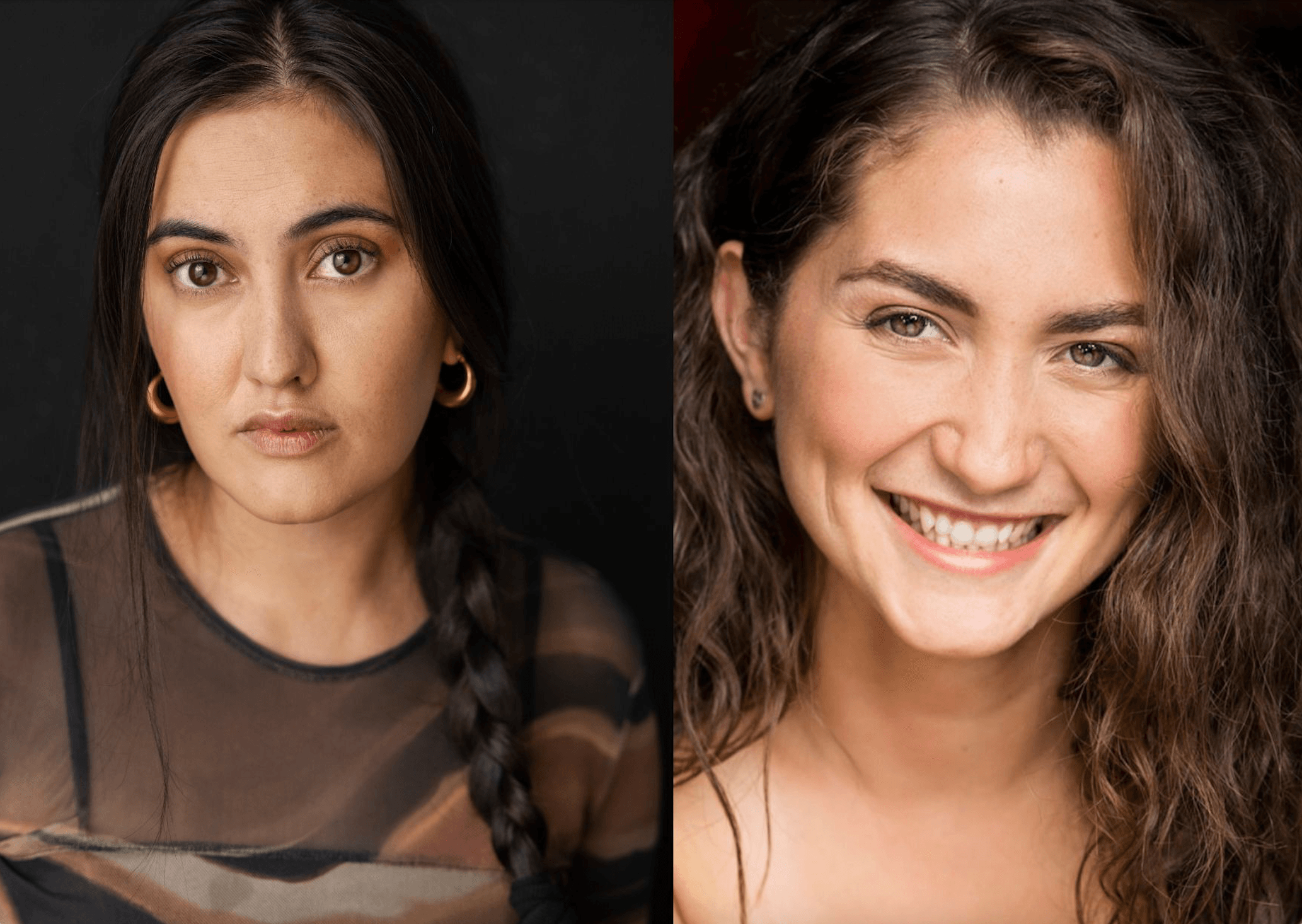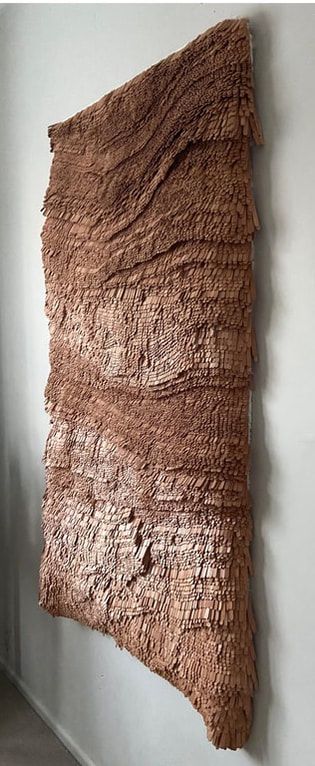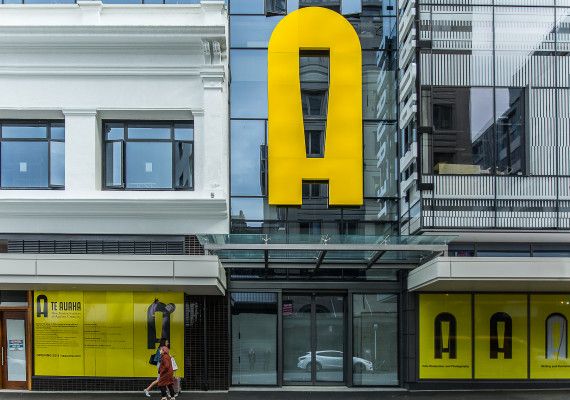Lowdown: Government Calls For Public Feedback on Screen Sector
The biggest threats to local content are being tackled in a new MCH consultation, big opportunity for indigenous creatives and arts organisations under pressure.

Concerned about the current state of the local content in the screen production eco-system?
You're not the only one - and you've also been invited to voice those concerns.
There is no question local production is facing a crisis point. That's strange to say about a sector that employs more than 25,000 directors, producers, writers, actors, camera operators, TV and radio presenters, editors, sound designers, visual effects artists and journalist, contributing $4.7 billion per year to the economy.
But gone are the days where New Zealand stories sat front and centre as a given - so much of what is produced in this country is made for overseas audiences, not telling the stories of our people, to our people.
It's no secret streaming services have had a huge role to play in changing the content consumption lanscape. Last year, Netflix reached 38% of New Zealanders daily, more than the free, government-funded linear channel was TVNZ1 (34%) and its online offering -also free - TVNZ+ (27%).
At stake - nothing short of our cultural identity. Seeing a broad array of New Zealanders front in centre in dramas, comedies, documentaries and reality shows plays a big part in a sense of connection. Seeing Kiwis perform and produce shows like Lord of the Rings and Sweet Tooth is always impressive - but they are not Aotearoa's stories.
Declining revenues for local media companies due to the overseas options sweeping in has seen wave after wave of cuts and redundancies - leaving us all the poorer. Sector reports from early 2024 suggested that broadcasters may reduce investment into local content by $60-80 million in the coming year.
Manatū Taonga Ministry for Culture and Heritage (MCH) has released a consultation document called Media Reform, which outlines five draft proposals to create modern legislation for New Zealand’s media and content production sector.
The purpose of the proposed changes - to a legislative process that is clearly no longer fit for purpose - is modernise the regulatory and funding environment for the industry and support a healthy and sustainable media and content production sector that delivers for New Zealand audiences.
MCH is seeking feedback on the five draft proposals:
- Ensuring accessibility of local media platforms - this would require TV manufacturers to ensure local media services are prominent and visible to audiences on devices such as Smart TVs
- Increasing investment into and discoverability of local content - streaming platforms and TV broadcasters would be required to invest in local content and help audiences to find it, supporting more production of and engagement with New Zealand stories on the platforms New Zealanders use
- Increasing captioning and audio description - Require more captioning and audio description of content that is broadcast or streamed to ensure access for disabled New Zealanders
- Modernising professional media regulation - Revise the broadcasting standards regime (including the outdated Broadcasting Standards Authority that only currently applies to linear TV and radio - not streaming services) with platform-neutral regulation to provide a long-awaited even playing field
- Streamlining Crown content funders - Consolidate NZ On Air and the Film Commission into a single entity, supporting more efficient and strategic administration of government funding for local content and industry development.
The proposals are yet to be signed off by the Government, who have not decided whether to progress them. That makes the consultation window - open now until the end of 23 March - imperative for both those with skin in the game and those with strong opinions to come forward to suggest improvements or tautoko the proposals that stand out.
It's meaning a busy time hearing from the creative community for Paul Goldsmith, tackling this assignment as Minister for Media and Communications while feedback for his creative and cultural strategy - Amplify - is being processed.
Goldsmith states "It is clear the media and content production sector is facing complex challenges. We now live in a time where audiences have unprecedented access to global media, making competition for viewers and advertising intense. However, much of the legislation underpinning our media landscape is outdated and stifling innovation.
"As the Government, we look to ensure regulatory settings treat all players equally, and don’t create unnecessary barriers. We have an interest in local production and a strong media, while realising it’s up to individual businesses to determine how best to respond to a changing market. The Government cannot solve these issues entirely.
"Building on the direction and actions set out in the draft of my Creative and Cultural Strategy, Amplify, the proposals in this document seek to create a fit for purpose regulatory and funding environment to enable the sector to function well, independently and sustainably, into the future.
"I want to hear from the sector and the wider public about these proposals, and how we could improve or change them to support the best outcomes for both the sector and New Zealand audiences.
"Your feedback will help ensure a modern, thriving and sustainable media and content production sector in New Zealand."
Bringing the streaming services into line will be a difficult task - but no doubt a popular one. It's been a kaupapa often covered on The Big Idea - most recently this opinion piece from Spada producers guild president Irene Gardiner.
The funding streamline proposal is being welcomed by many in the sector who have told The Lowdown that the blurred lines between the different entities has led to confusion and unnecessary overlaps.
A level playing field would make a huge difference for so many New Zealand creatives. Anyone interested in voicing their opinions can do so at the MCH website.
Māoriland magic

You can be sure local content is set for a good airing at this year's Māoriland Film Festival (MFF), with its 2025 programme just launched.
The largest Indigenous film festival in the world is set for its 12th edition in Ōtaki from 26-30 March - boasting 130 films and digital works from 86 Indigenous nations. MFF is entrenched as an important annual event for emerging filmmakers, sharing the same platform with some of the top screen minds in Aotearoa. This year, 37 rangatahi will be given a platform, many of whom will be presenting at the festival for the first time.
Programmer Oriwa Hakaraia declares “Māoriland has always ensured that the stories and voices of Rangatahi are uplifted and supported within the festival. Creating accessible pathways for Rangatahi filmmakers to share their work with audiences and filmmakers around the world.”
The festival opens with the Aoteroa debut of Kōkā - the debut feature film for writer and director Kath Akuhata Brown (Ngāti Porou), a story of healing, community, and reconciliation set to a Matariki road trip.
The world premiere of Julian Arahanga's documentary, The Stolen Children of Aotearoa, spotlights the harrowing experiences of survivors who endured abuse while in state care, predominantly from Māori communities.
While at the other end of the screen paradigm, families will surely flock to another world premiere of Shrek: Kātahi Te Korokē - produced by Māoriland Head of Content Libby Hakaraia.
Festival director Madeleine Hakaraia de Young says this year’s festival theme, ‘Ko te mauri, he mea huna ki te Moana,’ is a whakataukī that speaks of the life force of the ocean and the life force within us all.
“When we were programming this year's festival, we watched stories that evidence these profound changes all over the planet told through an Indigenous lens.
“We also saw stories of resilience, ingenuity and courage informed by generations of knowledge. Indigenous communities have solutions and we hope visitors to Māoriland will leave this year's festival activated and inspired.”
Engines revved

There has been plenty to celebrate for emerging indigenous creatives, with Nī Dekkers-Reihana and Katrina George beating out more than 80 other applicants to become the 2025 Engine Room Residents at Auckland Theatre Company (ATC).
A progamme designed to support the training and development of early to mid-career theatre directors, each will spend five months working with the ATC team, as well as working across three shows in the company’s 2025 season as Engine Room Assistant Director at the ASB Waterfront Theatre.
An award-winning actor who has been involved in the theatre scene for 15 years, Dekkers-Reihana (Ngā Puhi, Te Rarawa, Ngāti Porou) will take the first half of the year, working with with talented directors like Jane Yonge (a mixtape for maladies), Shane Bosher (Agatha Christie’s Murder on the Orient Express) and Alison Quigan (End of Summer Time).
“Such a rich tapestry of artists make up this programme and I’m deeply honoured to work alongside them. I’m particularly excited to gain insight into theatre-making at this scale. It’s such a bountiful playground! Nōku te whiwhi.”
George (Malie Sāmoa, Pākehā) starts her residency in June and will be Assistant Director to former Engine Room resident Benjamin Kilby-Henson(Romeo & Juliet), Oliver Driver (MARY: The Birth of Frankenstein) and Katie Wolfe (TIRI: TE ARAROA | WOMAN FAR WALKING).
With a CV that's seen her part of Red Leap Theatre, debut a sold-out work at Q Theatre's Loft (Moe Miti) and work as a movement director for ATC, it's another feather in George's bow.
“The chance to work alongside some of Aotearoa’s talented creatives is an incredible privilege. There’s nothing like seeing collaboration bring bold new works to life. It’s the perfect opportunity for growth, and I’m so grateful I get to be immersed in this learning.”
It's superb to see the the Engine Room Assistant Director Programme re-appear after a four year hiatus, seeing the pair follow in the footsteps of Kilby-Henson, Ahilan Karunaharan, Sananda Chatterjee, Whetu Silver, and Samuel Phillips.
Changing Threads on hold

Sometimes growth can be two steps forward, one step back.
At a time where far too many creative bodies are folding, Arts Council Nelson are in what they've described as "an exciting period of transition". But that has come with a short term cost.
The organisation - a crucial one to the creative community in the Tasman region - has announced "We've made the hard decision to defer the next Changing Threads Contemporary Fibre & Textile Awards to 2026."
The call has been made that the current transition period "requires the full capacity of our team, and has meant that we have had to prioritise our programming."
Changing Threads is the National Contemporary Fibre Art Awards, an exhibition that's been running annually since 2010 at the Refinery Artspace gallery in the Nelson CBD. It sees some of the country's leading textile practitioners enter and is always a popular event for local art enthusiasts.
A pause is better than the other option, and it has been encouraging to see many other events in similar situations in recent years begin to return to the fold. Fingers cross Changing Threads is back on the agenda again soo.
Capital concern

The news is worse for the creative community in Wellington - with creative polytech campus, Te Kāhui Auaha, likely to close after a dramatic drop in the student roll.
After having around 600 enrolled in 2018, those numbers now sit below 200.
It's more than just a campus for the aspiring creatives to learn - it's also an important venue, hosting events like the upcoming New Zealand Fringe Festival and the New Zealand International Comedy Festival.
While it's yet to be determined if the peformance space will remain open if the campus is closed, Comedy Fest's Lauren Whitney told RNZ it would be a major blow for Wellington's creative ecosystem.
"I'm also concerned for the wider performing arts industry, I mean this affects not just comedy, it's affecting theatre, dance, live music.
"It's a huge loss of having students in that space, but also ... what Te Auaha offers to Wellington's economy through those students."
Life on the road
If the trailer's anything to go by - we're about to get an incredible insight into the trials and tribulations of being a touring New Zealand artist in the upcoming Marlon Williams documentary.
The first glimpse of Marlon Williams: Ngā Ao E Rua - Two Worlds has just been released ahead of hitting cinemas across Aotearoa in May, just in time for New Zealand Music Month.
Director Ursula Grace-Williams has spend four years following the award-winning and much loved singer/songwriter, particularly on his journey creating his first te reo Māori language album - the upcoming Te Whare Tīwekaweka .
Williams says of the process, “There were definitely periods of reckoning, but the trust grew and grew as we moved forward. Ursula has an incredible creative eye for storytelling. I had faith that she would be able to tell the story in a nuanced way.”
Director Grace-Williams says she’s looking forward to premiering the film to audiences: “Marlon has such an infectious energy that’s fun to be around. He’s thoughtful, but also very silly, funny and charismatic. I think audiences will enjoy learning more about this side of him.”